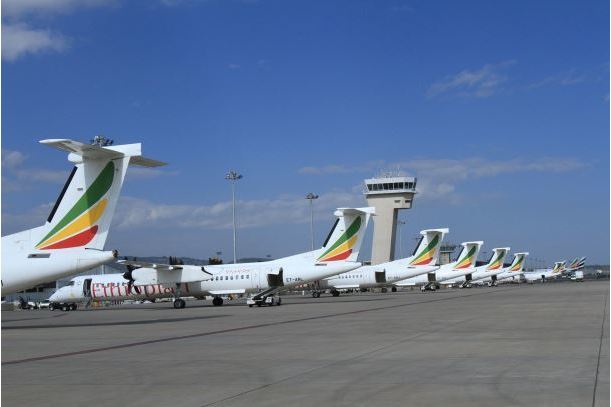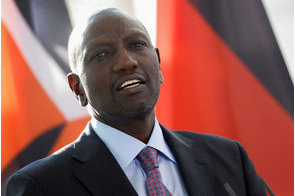Latest News
African airlines to lose $800mn in 2017 on low commodity prices, conflict

News Highlight
- IATA said its forecast for African airlines is the weakest financial performance among global carries expected next year.
The International Air Transport Association, a trade association for the world’s airlines, said today that it expects African airlines to post a net loss of $800 million in 2017 due to regional conflict and the impact of low commodity prices.
IATA said its 2017 forecast for African airlines is the weakest financial performance among global carries and it is broadly unchanged from the 2016 figures. Notwithstanding the weak performance of African carriers, capacity growth (4.7%) will outstrip demand (4.5%) next year. “For each passenger flown this amounts to an average loss of $9.97,” IATA said.
The Canada-based organization said the global airline industry, however, is expected to make a net profit of $29.8 billion in 2017 compared with a profit of $35.6 billion this year. Total revenue is forecast to reach $736 billion, representing a 4.1% net profit margin.
IATA said 2017 will be the third consecutive year (and the third year in the industry’s history) in which airlines will make a return on invested capital (7.9%), which is above the weighted average cost of capital (6.9%).
IATA also said 2017 is expected to be the eighth consecutive year of aggregate airline profitability, illustrating the resilience to shocks that have been built into the industry structure. On average, airlines will retain $7.54 for every passenger carried, the airline association said.
“Even though conditions in 2017 will be more difficult with rising oil prices, we see the industry earning $29.8 billion,” said Alexandre de Juniac, IATA’s Director General and CEO. “That’s a very soft landing and safely in profitable territory. These three years are the best performance in the industry’s history – irrespective of the many uncertainties we face.”
A breakdown of the 2017 outlook for the airline industry shows that IATA expects higher oil prices to exert the biggest impact, with jet fuel prices expected to rise by 25% from $52.1 per barrel (2016) to $64.9 per barrel (2017).
The demand stimulus from lower oil prices is forecast to taper off in 2017, slowing traffic growth to 5.1% (from 5.9% in 2016). Airline capacity growth will still outstrip the increase in demand, thus lowering the global passenger load factor to 79.8% (from 80.2% in 2016).
The negative impact of a lower load factor is expected to be offset somewhat by a strengthening of global economic growth as World GDP is projected to expand by 2.5% in 2017 (up from 2.2% in 2016).
The airline cargo revenues are expected to rise slightly to $49.4 billion in 2017 while cargo volumes reach a record high of 55.7 million tonnes (up from 53.9 million tonnes in 2016).
“We expect nearly 4 billion travelers and 55.7 million tonnes of cargo in the coming year. And almost 1% of global GDP is spent on air transport—some $769 billion,” said de Juniac. “Air transport has made the world more accessible than ever and it is a critical enabler of the global economy.”
A breakdown of regional outlooks for airlines in 2017 shows that North American carriers will deliver the strongest financial performance with a net profit of $18.1 billion (down from $20.3 billion this year). European airlines are expected to post an aggregate net profit of $5.6 billion in 2017, which is below the $7.5 billion for 2016.
Airlines in the Asia-Pacific region are expected to generate a net profit of $6.3 billion in 2017 (down from $7.3 billion in 2016). Middle Eastern airlines are forecast to generate a net profit of $300 million in 2017, which is below the $900 million profit expected in 2016. Latin American airlines are expected to post a net profit of $200 million, which is slightly lower than the $300 million forecast for 2016.
"Governments do not make aviation’s work easy. The global tax bill has ballooned to $123 billion,” said de Juniac. “Billions of dollars are wasted in direct costs and lost productivity as a result of inefficient infrastructure. Our aim is to work in partnership to help governments better understand and fully maximize the social and economic benefits of efficient global air links.”
Related News
Latest Blogs
- How net metering can boost embedded power generation
- Adaora Umeoji and gender in Nigerian banking leadership
- Is protest an endangered human right of Nigerians?
- Issues in using price control in Nigeria
- CBN’s target of 21 percent inflation rate
Most Popular News
- IFC, partners back Indorama in Nigeria with $1.25 billion for fertiliser export
- CBN increases capital requirements of banks, gives 24 months for compliance
- Univercells signs MoU with FG on biopharmaceutical development in Nigeria
- Ali Pate to deliver keynote speech at NDFF 2024 Conference
- CBN settles backlog of foreign exchange obligations
- Nasdaq Dubai welcomes $600m sukuk listing by Islamic Development Bank






